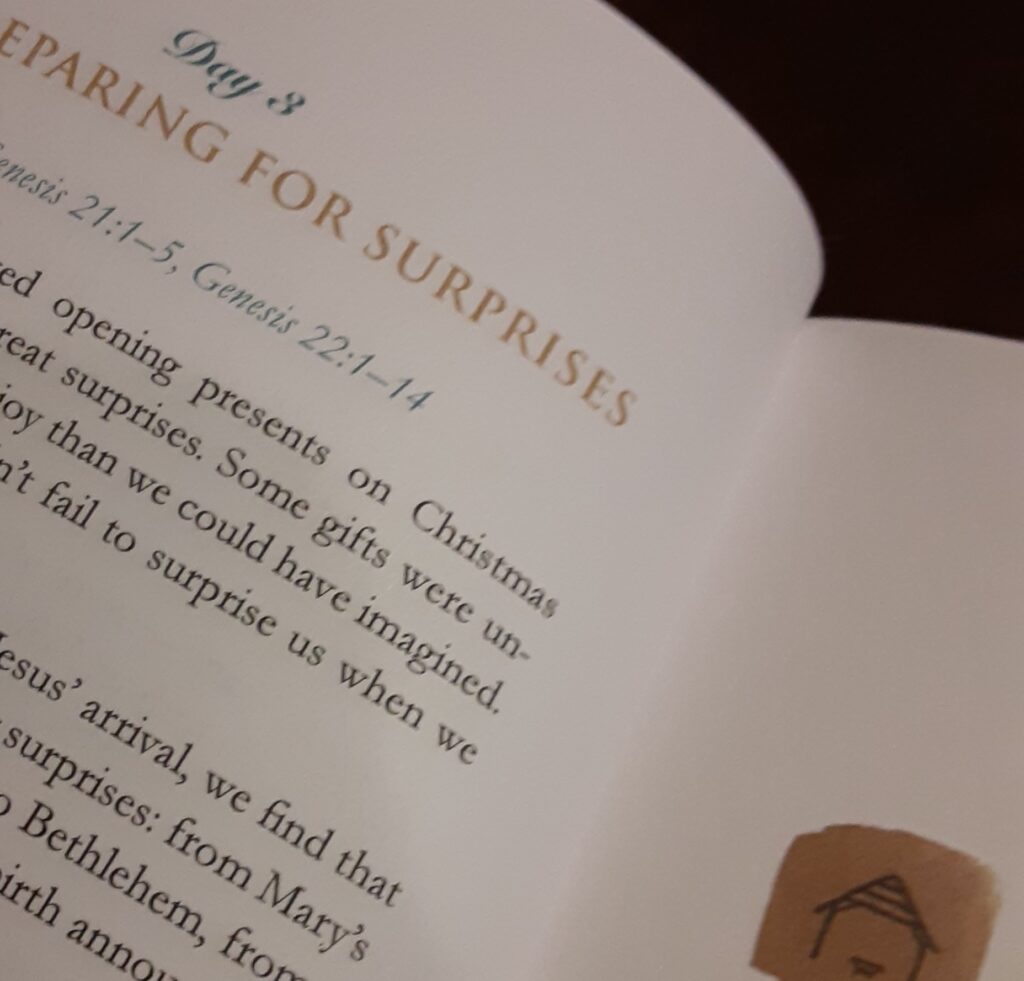Have you ever watched a favorite movie or TV show so often that you are shocked that one time you noticed something different? Perhaps something in the background, or a piece of dialogue that managed to fly below the radar during the first five (dozen? twenty?) viewings.
When this happens, it jolts us into paying attention to the story with new eyes and a fresh perspective. We watch with renewed excitement hoping to discover what else we may have missed.
As it turns out, the same thing can happen when we read our Bibles.
Whose Story Is It?
The Bible is God’s story, His special revelation to us. The Old Testament looks ahead to the life, death, and resurrection of Jesus, while the New Testament interprets and applies Jesus’ saving act of grace to our lives.

The stories of particular individuals, people groups, and events all show us how and where humanity fits in God’s story and why Jesus is necessary for us to find our place in God’s story.
Some individuals get a lot of page time in scripture with stories full of exciting details. Moses, Paul, Abraham, and David are probably the best-known figures in the Bible after Jesus. We could expand the list to include Noah, Joshua, Daniel, and Peter to name a few more. Their stories aren’t as prolific, but we still get a good sense of where they fit.
Today, I invite you to join me in examining a familiar story in a new way by exploring a chapter through a point-of-view not often associated with the passage. If you have a Bible handy, take a moment to read over Genesis 22.
The Story of Abraham …
Since the earliest days of the church, preachers and teachers have pointed to Abraham’s willingness to sacrifice Isaac as an example of sincere faith. Only deep faith can produce this level of obedience and trust in God’s direction. Abraham shows us what it means to put our faith into action.
Even the New Testament writers call our attention to Abraham to encourage our faith journeys. The writer of Hebrews proclaims:
By faith Abraham, when God tested him, offered Isaac as a sacrifice. He who had embraced the promises was about to sacrifice his one and only son, even though God had said to him, “It is through Isaac that your offspring will be reckoned.” Abraham reasoned that God could even raise the dead, and so in a manner of speaking he did receive Isaac back from death. – Hebrews 11:17-19 (NIV)
Even before Jesus’ arrival, the Hebrews passage reminds us, faith was a central characteristic of the people of God. James reinforces this truth:
You foolish person, do you want evidence that faith without deeds is useless? Was not our father Abraham considered righteous for what he did when he offered his son Isaac on the altar? You see that his faith and his actions were working together, and his faith was made complete by what he did. And the scripture was fulfilled that says, “Abraham believed God, and it was credited to him as righteousness,” and he was called God’s friend. You see that a person is considered righteous by what they do and not by faith alone. – James 2:20-24 (NIV)
Further, James reminds us that faith is not merely a state of mind, but it is an attitude of trust that compels action.
These are truthful and necessary examinations of Abraham’s story. As Christians, we need to hear this lesson over and over, and preachers are right to keep proclaiming it.
Today, however, let’s consider a different figure in the Genesis 22 account.
… or Isaac?
In my Advent Devotional, Preparing for Jesus, I invite readers to read Genesis 22 from Isaac’s perspective.

While we might (and should) aspire to the deep faith of Abraham depicted in the passage, it helps us to remember that we can all be Isaac without any effort. It takes no effort to be Isaac because his circumstance is our circumstance, and in light of Jesus’ redemptive sacrifice, Isaac’s story is our story.
Isaac’s Role
In this passage, Abraham is responsible for most of the action while Isaac is passive through much of the story. Only verses 6 and 7 show Isaac taking an active part in the events:
Abraham took the wood for the burnt offering and placed it on his son Isaac, and he himself carried the fire and the knife. As the two of them went on together, Isaac spoke up and said to his father Abraham, “Father?”
“Yes, my son?” Abraham replied.
“The fire and wood are here,” Isaac said, “but where is the lamb for the burnt offering?” – Genesis 22:6-7 (NIV)
We see Isaac carrying the wood up the mountain, and we see him asking about the absence of a sacrificial lamb. Apparently, Isaac has enough experience to realize that this sacrifice is different. He is confused, but not necessarily alarmed.
Isaac’s Point-of-View
Since we’re spending time in Isaac’s head, we sense that the mood changes in verse 9 when Abraham binds Isaac and lays him on the altar. Now we’re alarmed, and more than a little afraid.
The mood changes again in verses 11 through 13 when God calls out to Abraham and directs him toward the ram He provided. We can’t see the source of the voice but we hear the words clearly. “Do not lay a hand on the boy!” We feel Isaac’s relief and new sense of hope as we realize we’ve been rescued.
The details of Abraham unbinding Isaac aren’t recorded, but they are not hard to imagine. We easily envision a flood of tears, the fatigue of emotional turmoil, and a long sob-filled embrace.
Had Isaac ever experienced such a meaningful sacrifice before this moment? Probably not. Could Isaac ever sacrifice another lamb without recalling this one and reflecting on its impact? Not likely.
Our Story
What does Isaac’s story tell us about our own story? Here are some quick takeaways.
First, even before we realize the full magnitude of our situation, we recognize that something is off. It doesn’t take much for people to see that the world is not as it should be, that is corrupted and broken. Pain, evil, and death all testify to the brokenness of the world.
Sometimes, we experience an event so impactful that we realize that our own situation is hopeless. We understand that the brokenness of the world includes our own brokenness. Isaac was physically bound and unable to rescue himself. Likewise, we are spiritually bound by sin, just as helpless as Isaac to free ourselves from bondage.
Finally, we see the lamb. In our most hopeless moment, when we are unable to save ourselves and fully aware of this reality, we see Jesus. The lamb, sent to take our place, to be our substitute, to die so that we may live, reconciled to our Father.
If you know Jesus, you’ve had your own Isaac moment (or a few Isaac moments, because sometimes we need reminders). If you’re in a different place on your journey, maybe you feel stuck, or just detect that something is off. And perhaps the lamb, the substitute that you desperately need, is closer than you know.
